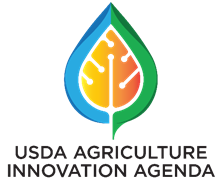A new paper published February 19, 2020, in the open-access journal PLOS ONE (“Genomic and phenotypic characterization of Burkholderia isolates from the potable water system of the International Space Station” 19 February 2020), reports that the water dispenser aboard the International Space Station (ISS) in 2009, periodic sampling showed that two bacteria, Burkholderia cepacia and, Burkholderia contaminans were contaminating the drinking water. Burkholderia species can cause opportunistic lung infections in people with underlying health conditions and are very difficult to kill using common sterilization techniques. The bacteria have persisted in the water dispenser despite periodic flushing with an extra-strength iodine cleaning solution. All of the B. cepacia and B. contaminans strains were highly similar and likely descended from original populations of these two bacteria that were present in the water dispenser when it left Earth. @ https://scitechdaily.com/researchers-analyze-nasty-species-of-bacteria-that-has-colonized-space-stations-water-dispenser/
ruth
Bacteria on the International Space Station no more dangerous than earthbound strains. Two particularly tenacious species of bacteria have colonized the potable water dispenser aboard the International Space Station (ISS), but a new study suggests that they are no more dangerous than closely rela
ruth
New antibiotics that the researchers named “Halicin” have been discovered by a team from MIT capable of killing some of the most dangerous drug-resistant bacteria in the world. The drug works differently than existing antibiotics and is the first of its kind to be found using artificial Intelligence (AI), by utilizing vast digital libraries of pharmaceutical compounds. The drug was effective against Acinetobacter baumannii and Enterobacteriaceae, two of the three high-priority pathogens that the World Health Organization. James Collins, a bioengineer on the team, said that it is one of the most powerful antibiotics discovered. After teaching the algorithm what molecular features made for good antibiotics, the scientists set it working on a library of more than 6,000 compounds under investigation. Rather than looking for any potential antimicrobials, the algorithm focused on compounds that looked effective but unlike existing antibiotics. This boosted the chances that the drugs would work in radical new ways that bugs had yet to develop resistance to. Tests on bacteria collected from patients showed that Halicin killed Mycobacterium tuberculosis, and strains of Enterobacteriaceae that are resistant to carbapenems. Halicin also cleared C. difficile and multidrug-resistant Acinetobacter baumannii infections in mice. More ambitiously, the scientists aim to use the algorithm to design potent new antibiotics from scratch. @ https://www.theguardian.com/society/2020/feb/20/antibiotic-that-kills-drug-resistant-bacteria-discovered-through-ai
Team at MIT says halicin kills some of the world’s most dangerous strains
ruth
The Secretary of Agriculture Sonny Perdue announced the Agriculture Innovation Agenda that focuses on “The Innovation Imperative: Shaping the Future of Agriculture.” The USDA will stimulate innovation so that American agriculture can achieve the goal of increasing production by 40% while cutting the environmental footprint of U.S. agriculture in half by 2050. The first component of the Ag Innovation is to develop a strategy that aligns and synchronizes public and private sector research. The second component is to align the work of customer-facing agencies and integrate innovative technologies and practices into USDA programs. The third component is to conduct a review of USDA productivity and conservation data. Some of the benchmarks include Food loss and waste: reduce food loss and waste by 50 percent in the United States by the year 2030. Carbon Sequestration and Greenhouse Gas: achieve a net reduction of the agricultural sector’s current carbon footprint by 2050 without regulatory overreach. Water Quality: Reduce nutrient loss by 30% nationally by 2050. Renewable Energy: increase biofuel production efficiency and competitiveness to achieve market-driven blend rates of 15% of transportation fuels in 2030 and 30% of transportation fuels by 2050. @ https://www.usda.gov/media/press-releases/2020/02/20/secretary-perdue-announces-new-innovation-initiative-usda
(Washington, D.C, February 20, 2020) – U.S.
ruth
Israeli entrepreneurs Joseph Siani and Lior Itai founded W-Cycle, a start-up that developed compostable packaging solutions to tackle the masses of C-PET plastic used in the ready-meal packaging industry. W-Cycle decided to approach the intimidating challenge of producing an alternative to plastic packaging. Rather than producing single-use trays from plastic and aluminum, W-Cycle’s patented ‘SupraPulp’ packaging product that is based on sugarcane pulp, known as bagasse. They took a by-product from the sugarcane industry as their raw material. W-Cycle’s material can now be frozen to minus-40°C and be reheated in the oven to 250°C. The material is entirely omniphobic (liquid-repelling surface). After use, the package can either be thrown away into a brown recycling bin as organic waste or in the paper recycling bin since it is completely natural and 100% compostable. The company is currently in advanced discussions with ready-meal manufacturers and a series of major airline catering companies from Europe and the Far East. W-Cycle’s solution is stronger and cheaper than plastic. @ https://m.jpost.com/Israel-News/Meet-the-Israeli-innovation-that-can-put-an-end-to-plastic-packaging-617841/amp
Rather than producing single-use trays from plastic and aluminum, W-Cycle’s patented ‘SupraPulp’ packaging product is based on sugarcane pulp, known as bagasse




